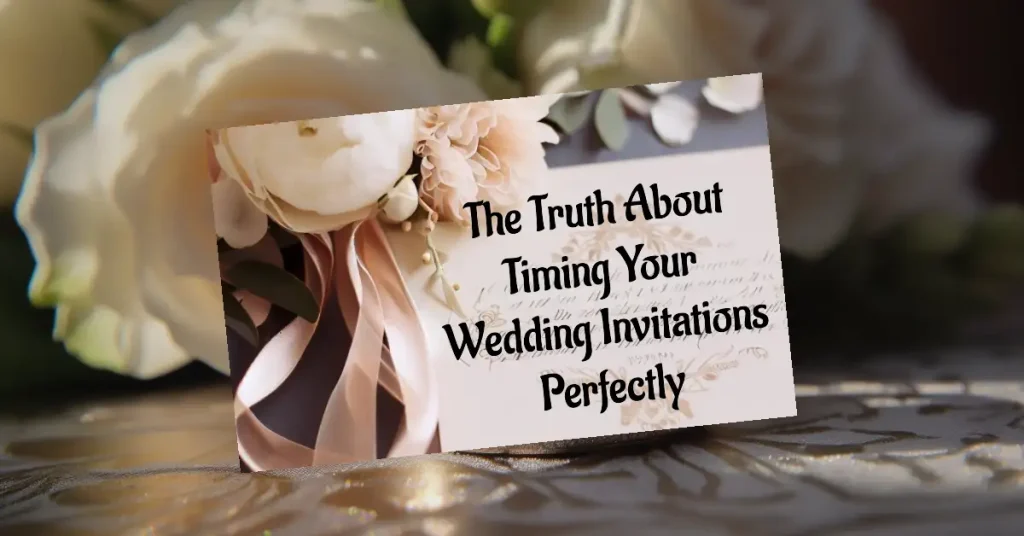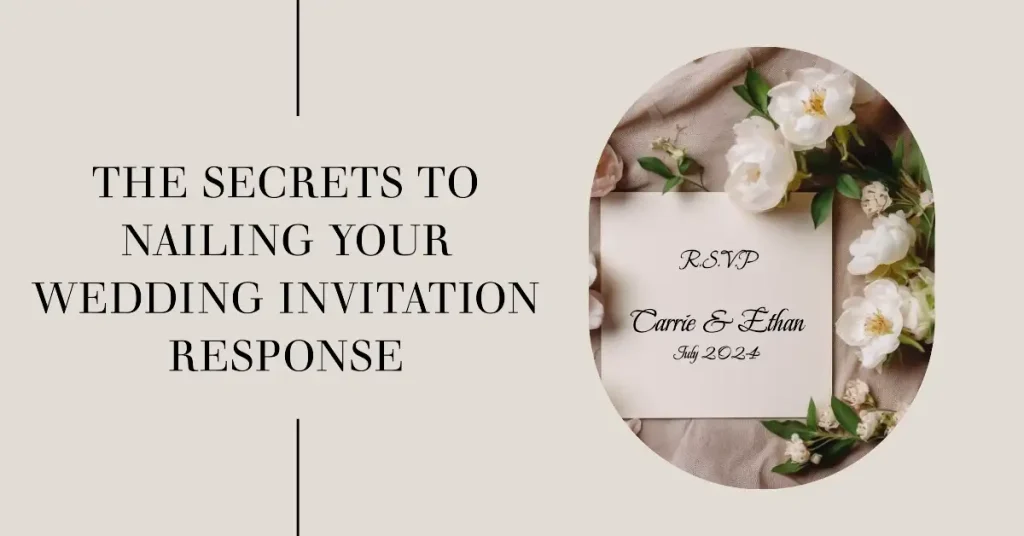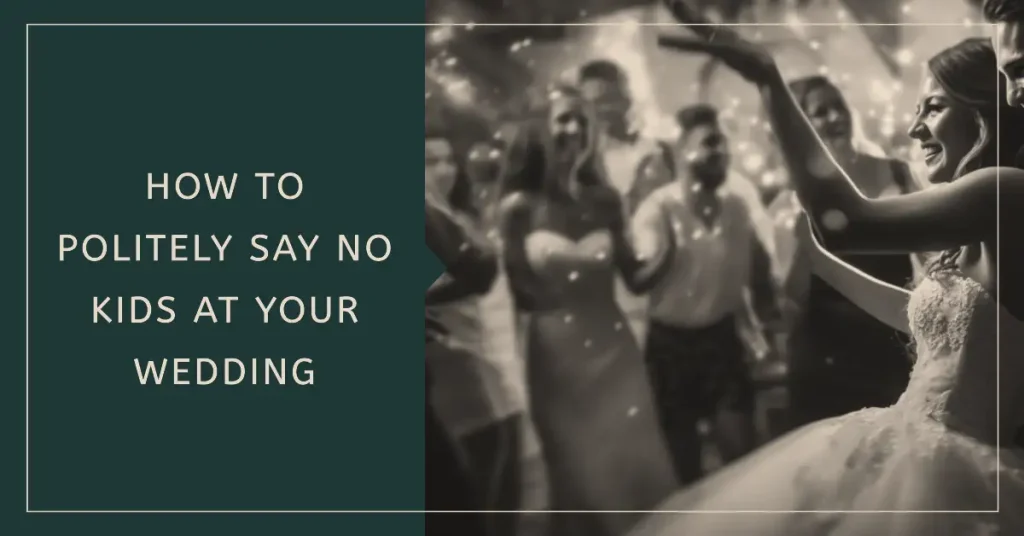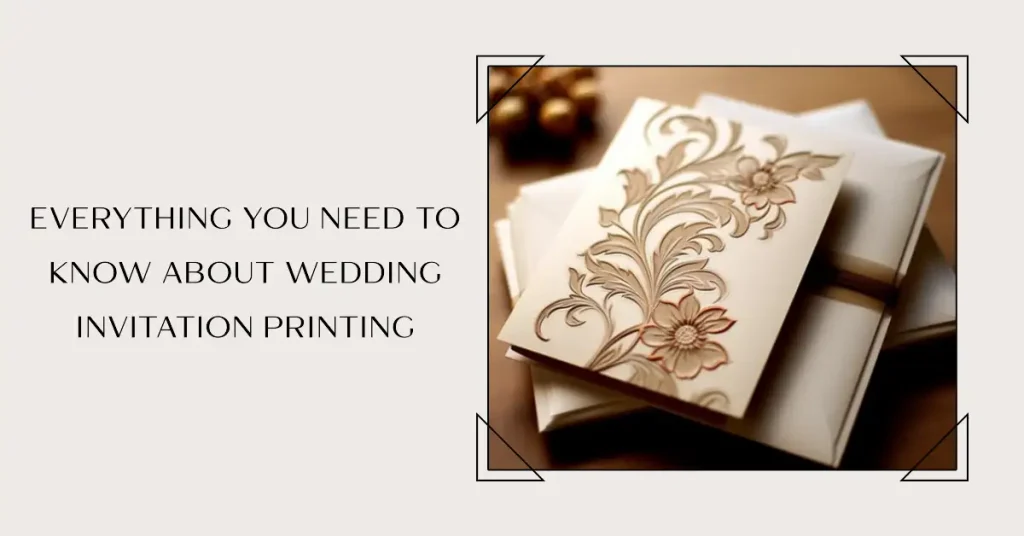Table of Contents
Send wedding invitations 6-8 weeks before the wedding. For destination or peak season weddings, send invitations 3 months in advance. Use Save the Date cards to give guests a heads up 6-8 months before the wedding.
Key Takeaways
- Send Invitations Early: Wedding invitations should be sent out 6-8 weeks before the wedding. For destination weddings or those during peak season, send them 3 months in advance.
- Save the Dates: Use Save the Date cards to inform guests 6-8 months before the wedding, especially for destination weddings or weddings during busy travel times.
- Planning Timeframe: Start planning your wedding 12 to 18 months in advance to ensure ample time for booking venues and vendors.
- Consider the Wedding Date and Time: Give guests plenty of notice if the wedding is during a busy time of year or if they need to make travel arrangements.
- Guest List Size: The size of your guest list may affect how early you need to send invitations, especially if you have a large number of guests.
- Invitation Details: Include all necessary details in the wedding invitation, such as the host line, request line, names of the couple, date and time, location, dress code, and RSVP information.
- RSVP Etiquette: Set an RSVP deadline and follow up with guests who do not respond in a timely manner to ensure an accurate headcount.
Wedding planners often say that one of the most common questions they get asked is “When should we send out our wedding invitations?” It’s a crucial question, as sending invitations too early or too late can have unintended consequences. In this article, we will look at the factors you need to consider when deciding when to send out your wedding invitations and provide recommended timelines for different scenarios.
How Far in Advance Should You Plan Your Wedding?
Planning a wedding can be a complex and time-consuming process, and it’s important to start planning as early as possible to ensure that everything goes smoothly. Here are some guidelines for how far in advance you should plan your wedding:
- Carter, Lisa (Author)
- English (Publication Language)
- 107 Pages - 04/06/2024 (Publication Date) - Independently published (Publisher)
- Twelve to Eighteen Months: Ideally, you should start planning your wedding 12 to 18 months in advance. This gives you plenty of time to research and book venues, hire vendors, and make all of the necessary arrangements.
- Six to Twelve Months: If you’re planning a smaller wedding or have more flexibility in your arrangements, you can start planning six to twelve months in advance. However, you may need to be more flexible with your venue and vendor choices, as many of the top options may already be booked.
- Three to Six Months: If you’re planning a simpler wedding or have already made some of the major arrangements, you can start planning three to six months in advance. However, you’ll need to be more flexible with your choices and may have fewer options available.
- Less Than Three Months: If you’re planning a very small or last-minute wedding, you may only have a few weeks or months to plan. In this case, you’ll need to be extremely flexible with your choices and be prepared to make quick decisions.
By starting to plan your wedding well in advance, you can ensure that you have enough time to research and book the best venues and vendors and make all of the necessary arrangements. Whether you have 12 to 18 months, 6 to 12 months, 3 to 6 months, or less than 3 months to plan your wedding, it’s important to be organized, flexible, and prepared to make quick decisions as needed. The sooner you start planning, the more time your guests will have to plan and fit your date into their calendars.
Factors to Consider When Deciding When to Send Wedding Invitations
When deciding when to send out your invitations, it is important to keep in mind the wedding date and time. If your wedding is taking place during a busy time of year, such as a holiday or peak travel season, it’s important to give your guests plenty of notice. This will ensure that they have enough time to make travel arrangements and secure accommodations. Similarly, if you’re planning a wedding during a weekday or a time when guests may need to take time off work, you’ll want to give them ample notice so they can plan accordingly.
Another factor to consider is whether your wedding is a destination wedding. If it is, you’ll want to send your invitations earlier than you would for a local wedding. Destination weddings require more planning and preparation for guests, including travel arrangements and time off work, so it’s crucial to give them as much notice as possible. Consider sending out your invitations at least three to four months in advance for a destination wedding.
The size of your guest list is another factor to keep in mind. If you have a particularly large guest list, it may take longer to address and send out your invitations. Be sure to allow enough time to complete these tasks to avoid any delays in sending out your invitations. You’ll want to ensure that all of your guests receive their invitations in a timely manner, so factor in the time it will take to complete this task.

When Should You Send Save the Dates for Your Wedding?
When it comes to planning your wedding, sending save-the-date cards are a great way to give your guests advance notice and ensure they have plenty of time to make arrangements to attend your special day. But when should you send save-the-dates? Here’s what you need to know:
Generally speaking, you should plan to send save-the-date cards six to twelve months before your wedding day. This gives your guests plenty of time to mark their calendars, arrange for time off work, and make travel plans if necessary. If you’re having a destination wedding or getting married during a peak travel season, consider sending your save-the-dates on the earlier side to give your guests even more notice.
Another factor to consider when sending save-the-dates is the timing of your wedding. If you’re planning to tie the knot during a holiday weekend or other busy time of year, it’s especially important to give your guests plenty of advance notice. Sending your save-the-dates earlier rather than later can help ensure that your guests are able to attend.
It’s worth noting that save-the-dates are typically less formal than wedding invitations, so you can be a bit more creative and playful with them. Consider including engagement photos, using bold colors or unique designs, or even creating a magnet or other keepsake that your guests can use to mark their calendars.
Recommended Timelines for Sending Wedding Invitations
Traditionally, wedding invitations have been sent 6-8 weeks before the wedding day, with an RSVP date set 2-3 weeks before the wedding. This timeline has worked well for many years, as it gives guests enough time to respond and make arrangements to attend the wedding. However, in recent years, modern couples are choosing to send out invitations earlier to give guests more time to plan.
It’s becoming increasingly common for couples to send out invitations 10-12 weeks before the wedding, with an RSVP date set 3-4 weeks before the wedding. This longer timeline allows guests to plan their schedules and make travel arrangements if necessary. It’s especially useful for destination weddings or weddings that are taking place during peak travel seasons or holidays.
Regardless of the timeline you choose, it’s important to follow up with non-responders. You’ll want to set a deadline for RSVPs to be received and then send reminders to guests who haven’t responded by that deadline. For traditional timelines, a deadline one week before the wedding day is recommended, while for modern timelines, follow up two weeks before the wedding day.
Remember, this is your special day, and you want to ensure that everyone who wants to be there has enough time to plan and attend. By sending out invitations earlier and following up with non-responders, you can help ensure that your guests have the information they need to make arrangements to attend your wedding.
Customized timelines are also an option, and they can be based on the factors mentioned above. For example, if you’re having a destination wedding during peak travel season, you might want to send invitations out 12-16 weeks before the wedding. Similarly, if your guest list is particularly large, you might want to send invitations earlier to ensure everyone has enough time to respond.
What Should be Included in a Wedding Invitation?
A wedding invitation is a crucial piece of the wedding planning process. It not only provides the essential details for the wedding day but also sets the tone for the event. So, what should be included in a wedding invitation? Here are the essential details:
- Host Line: The invitation should begin with a host line, which traditionally includes the names of the couple’s parents. For example, “Mr. and Mrs. John Smith request the pleasure of your company at the wedding of their daughter, Jane Smith, to Mr. James Johnson.”
- Request Line: This line formally invites the guest to the wedding. It usually starts with a phrase like “request the honor of your presence” or “invite you to join them in celebrating their marriage.”
- Names of the Couple: The names of the couple getting married should be included on the invitation.
- Date and Time: The date and time of the wedding should be prominently displayed on the invitation. It’s essential to ensure that the date and time are accurate to avoid any confusion.
- Location: The location of the wedding ceremony and reception should be included on the invitation. If the ceremony and reception are in different locations, both addresses should be listed.
- Dress Code: It’s helpful to include a dress code on the invitation so that guests know what to wear. For example, if it’s a black-tie wedding, you should state “black tie” on the invitation.
- RSVP: It’s essential to include an RSVP date and contact information for guests to respond to. This information can be included on a separate RSVP card or at the bottom of the invitation.
- Additional Information: If there are any other important details that guests need to know, such as accommodations or transportation information, it’s helpful to include that information on a separate enclosure card.

How Many Invitations Should You Order for a Wedding?
When planning your wedding, it’s important to have an accurate estimate of how many invitations you’ll need to order. Ordering too few invitations can lead to a last-minute scramble to order more, while ordering too many can lead to unnecessary expenses. So, how many invitations should you order for a wedding? Here are some factors to consider:
- Guest List Size: The most important factor to consider when ordering invitations is the size of your guest list. Count up the number of households or individuals you’ll be inviting to the wedding to determine how many invitations you’ll need.
- Extras: It’s always a good idea to order some extra invitations, just in case. Ordering 10-15% extra invitations can help ensure that you have enough for any last-minute additions or mistakes.
- Single vs. Household Invitations: If you’re sending invitations to households rather than individuals, you may be able to order fewer invitations. For example, if you’re inviting a couple and their children, you could send one invitation to the entire household instead of individual invitations.
- Save-the-Dates: If you’ve already sent save-the-date cards, you can subtract those households or individuals from your invitation count. Be sure to double-check your guest list to ensure that you’re not over-ordering invitations.
- Vendor Needs: Don’t forget to order invitations for vendors who will be attending the wedding, such as the photographer, caterer, or DJ.
In general, it’s a good idea to order slightly more invitations than you think you’ll need. This can help you avoid any last-minute ordering or printing expenses if you run out of invitations. And if you end up with extra invitations, you can always use them as keepsakes or mementos from your special day.
How Can You Save Money on Wedding Invitations?
The invitations are an essential part of the wedding planning process, but they can also be expensive. Fortunately, there are several ways to save money on wedding invitations without sacrificing quality. Here are some tips for saving money on wedding invitations:
- Simplify the Design: One of the easiest ways to save money on wedding invitations is to simplify the design. Consider using a standard design rather than a custom design or limiting the number of colors used. You could also consider using a postcard-style invitation, which is less expensive than traditional folded invitations.
- DIY Invitations: Another way to save money on wedding invitations is to create them yourself. You can purchase invitation kits or design templates online, and then print them at home or at a local print shop. DIY invitations also allow you to add personal touches such as ribbons or embellishments.
- Use Electronic Invitations: Electronic invitations are becoming increasingly popular and can save you money on printing and postage. There are several online platforms available that offer customizable designs and features such as tracking and reminders.
- Order in Bulk: If you’re ordering your invitations from a printer, consider ordering them in bulk to save on per-piece costs. Ordering other items such as save-the-dates or thank-you cards at the same time can also help you save money.
- Skip the Extras: While custom envelopes, liners, and embellishments can add a personal touch to your invitations, they can also add to the cost. Consider skipping these extras or using simpler options to save money.
- Shop Around: Be sure to shop around and compare prices from different vendors before making a decision. You may be able to find a better deal or a vendor with more affordable options.
By following these tips, you can save money on wedding invitations and still create beautiful, personalized invitations for your guests. Remember, the most important thing is to ensure that your guests receive all the necessary details and information about your special day.
What Is the Proper Way to Address Wedding Invitations?
When addressing wedding invitations, you may want to follow proper etiquette to ensure that your guests feel valued and respected. This is more appropriate for elderly relatives but not necessarily for younger guests who won’t expect such formalities. Here are some guidelines for addressing wedding invitations, although how you address invitations will be determined by the guest in question:
- Use Formal Names: Address your guests by their full, formal names, rather than nicknames or informal names. For example, “Mr. and Mrs. John Smith” instead of “John and Jane Smith.”
- Spell Out Titles: When addressing the envelope, spell out titles such as “Doctor” or “Professor.” For example, “Doctor. and Mrs. John Smith.”
- Properly Address Married Couples: Address married couples with the husband’s name first, followed by the wife’s name. For example, “Mr. and Mrs. John Smith.”
- Address Unmarried Couples: If the couple is not married, address the envelope with both of their names, listing them alphabetically by last name. For example, “Ms. Jane Smith and Mr. John Johnson.”
- Address Families with Children: Address the envelope to “Mr. and Mrs. John Smith and Family” or list the children’s names on a separate line underneath the parents’ names.
- Use Appropriate Titles for Single Guests: For single guests, use the appropriate title such as “Miss,” “Ms.,” or “Mr.” followed by their full name.
- Consider Professional Titles: Address envelopes to guests using their professional titles if they hold a high-ranking position, such as “Honorable” for judges or “Colonel” for military personnel.
- Consider Divorced or Widowed Guests: When addressing invitations to divorced or widowed guests, use their preferred title, such as “Mrs.” or “Ms.” and include both their first and last name.

How to Send Wedding Invitations
Once you’ve decided on when to send your wedding invitations, the next step is to determine how to send them. There are three primary options: mail, online, and hybrid.
- Mail: The traditional option for sending wedding invitations is through the mail. This option adds a personal touch to your invitations and can be a beautiful keepsake for guests. When sending invitations through the mail, be sure to use high-quality paper and consider adding a personal touch such as a custom envelope liner or wax seal. Additionally, you’ll want to ensure that you have accurate and up-to-date addresses for all of your guests.
- Online: With the increasing popularity of technology, more couples are opting to send their wedding invitations online. This option can be more cost-effective and eco-friendlier and can also make it easier for guests to RSVP. There are several online invitation platforms available that offer customizable designs and features such as tracking and reminders.
- Hybrid: If you’re torn between the traditional and online options, a hybrid approach may be the best choice for you. A hybrid option combines both mailed and online invitations, providing the best of both worlds. For example, you could send a paper invitation to older guests or those who prefer a more traditional approach, while sending an online invitation to younger guests or those who prefer digital communication.
When deciding how to send your wedding invitations, it’s important to consider your guests’ preferences and needs. Some guests may prefer the traditional mailed option, while others may appreciate the convenience of an online invitation. By considering your guests and their preferences, you can choose the option that works best for your wedding and your guests.
What Is the Etiquette for RSVPs on Wedding Invitations?
RSVPs are an essential part of wedding planning, as they help you determine the final headcount for your wedding and ensure that you have everything you need for your guests. Here are some etiquette guidelines for RSVPs on wedding invitations:
- Set a Deadline: When sending out wedding invitations, be sure to include an RSVP deadline. This gives your guests a clear timeline for when they need to respond and helps you stay on top of your guest count.
- Provide Response Options: It’s important to provide clear and easy-to-understand response options for your guests. This may include a pre-stamped RSVP card, an online form, or a phone number or email address for guests to respond to.
- Follow Up with Non-Responders: It’s important to follow up with guests who haven’t responded to your invitation by the RSVP deadline. One week before the wedding, send a reminder to any guests who haven’t responded, and follow up with a phone call or email if necessary.
- Include All Necessary Information: When sending out your invitations, be sure to include all necessary information for your guests to respond, including the RSVP deadline, response options, and any additional information they need to know.
- Keep Track of Responses: As you receive responses from your guests, be sure to keep track of them in a spreadsheet or other tracking tool. This will help you keep track of your final headcount and ensure that you have everything you need for your guests on the big day.
- Consider Meal Choices: If you’re offering meal choices at your wedding, be sure to include them on the RSVP card or form. This will help you ensure that you have enough of each meal option for your guests.
RSVPs are an important part of wedding planning, and it’s essential to follow proper etiquette to ensure that you receive responses in a timely and organized manner. By setting a deadline, providing clear response options, following up with non-responders, including all necessary information, keeping track of responses, and considering meal choices, you can make sure that your guests have everything they need to respond to your invitation and help make your special day a success.
What Is the Etiquette for Sending Thank-You Notes After a Wedding?
Sending thank-you notes after a wedding is an important way to show your appreciation to your guests for their attendance and any gifts they may have given. Here are some etiquette guidelines for sending thank-you notes after a wedding:
- Send Them Promptly: It’s important to send thank-you notes as soon as possible after the wedding, ideally within two to three months. This shows your guests that you value their presence and that you took the time to express your appreciation.
- Be Personal: Each thank-you note should be personal and specific to the recipient. Mention the gift or gesture they provided and express your gratitude for their presence at your wedding.
- Handwrite Them: Handwritten thank-you notes are more personal and meaningful than printed or typed notes. Take the time to write out each note by hand, and consider using high-quality stationery.
- Mention Your Spouse: Be sure to mention your spouse in the thank-you note, even if they didn’t write the note themselves. This shows that you both appreciate the guest’s presence and any gifts they may have given.
- Be Gracious: Use a positive tone and express your gratitude in a gracious and sincere manner. Thank your guests for their support, their presence, and any gifts they may have given, and express your excitement for your future together as a couple.
- Keep Track: Keep track of which gifts each guest gave you, as well as which guests attended the wedding. This will make it easier to personalize each thank-you note and ensure that no one is overlooked.
Sending thank-you notes after a wedding is an important way to show your appreciation to your guests and thank them for their presence and any gifts they may have given. By sending thank-you notes promptly, being personal, handwriting the notes, mentioning your spouse, being gracious, and keeping track of gifts and attendees, you can ensure that your thank-you notes are meaningful and heartfelt expressions of gratitude.
Conclusion
In conclusion, sending out wedding invitations is an essential part of the wedding planning process. It’s important to take the time to consider the factors that influence when to send invitations, such as wedding date and time, destination, guest list size, and save-the-dates. Once you’ve determined your timeline, make sure to follow up with non-responders and decide on the best method of sending your invitations. Remember, your wedding day is a special occasion, and you want to make sure everyone you want there has enough time to plan and attend.
FAQs
Q: When should I send out wedding invitations?
A: It’s recommended to send out wedding invitations 6-8 weeks before the wedding date. This gives your guests enough time to make necessary arrangements, such as booking travel and accommodations.
Q: What if I have a destination wedding?
A: For a destination wedding, it’s best to send out save-the-dates 6-8 months before the wedding date and wedding invitations 10-12 weeks before the wedding date. This will give your guests plenty of time to make travel arrangements.
Q: What if I have a short engagement?
A: If you have a short engagement, aim to send out invitations as soon as possible. Ideally, you should send them out 4-6 weeks before the wedding date.
Q: Is it ever too early to send out wedding invitations?
A: Yes, it’s generally not recommended to send out invitations more than 3-4 months before the wedding date. This is because some guests may forget about the wedding or misplace the invitation if it’s sent out too early.
Q: What information should be included in the wedding invitation?
A: The wedding invitation should include the names of the couple getting married, the date and time of the wedding, the location of the wedding ceremony and reception, RSVP instructions, and any other important details, such as dress code or gift preferences.
Q: Should I send out physical invitations or digital invitations?
A: This ultimately depends on personal preference and the theme of the wedding. Physical invitations may be more traditional and formal, while digital invitations may be more modern and environmentally friendly. However, it’s important to make sure all guests receive the invitation, regardless of the method.
Q: When should I request RSVPs?
A: The RSVP deadline should be at least 2-3 weeks before the wedding date. This gives you enough time to finalize the guest list, seating arrangements, and catering.
Q: What should I do if some guests haven’t RSVPed by the deadline?
A: It’s appropriate to follow up with guests who haven’t RSVPed by the deadline. You can do this through a phone call or email reminder. If you still don’t hear from them, assume they are not attending and adjust your guest count accordingly.
COPYRIGHT NOTICE
Please be advised that all images, designs, and creative content on this page are the exclusive property of TheIDoGuide.com and are protected under international copyright laws. The images may not be reproduced, copied, transmitted or manipulated without the written permission of TheIDoGuide.com.
Unauthorized use, distribution, display, or creation of derivative works of any images contained on this site, is strictly prohibited and can lead to legal penalties. We actively monitor for, and enforce, our copyright interests.
If you wish to use any of our images, kindly contact us to seek permission. Respect of copyright is not merely a legal requirement but also an acknowledgement and support of the hard work and creativity that goes into producing them.
Thank you for your understanding and cooperation.
© 2023, TheIDoGuide.com. All Rights Reserved.






